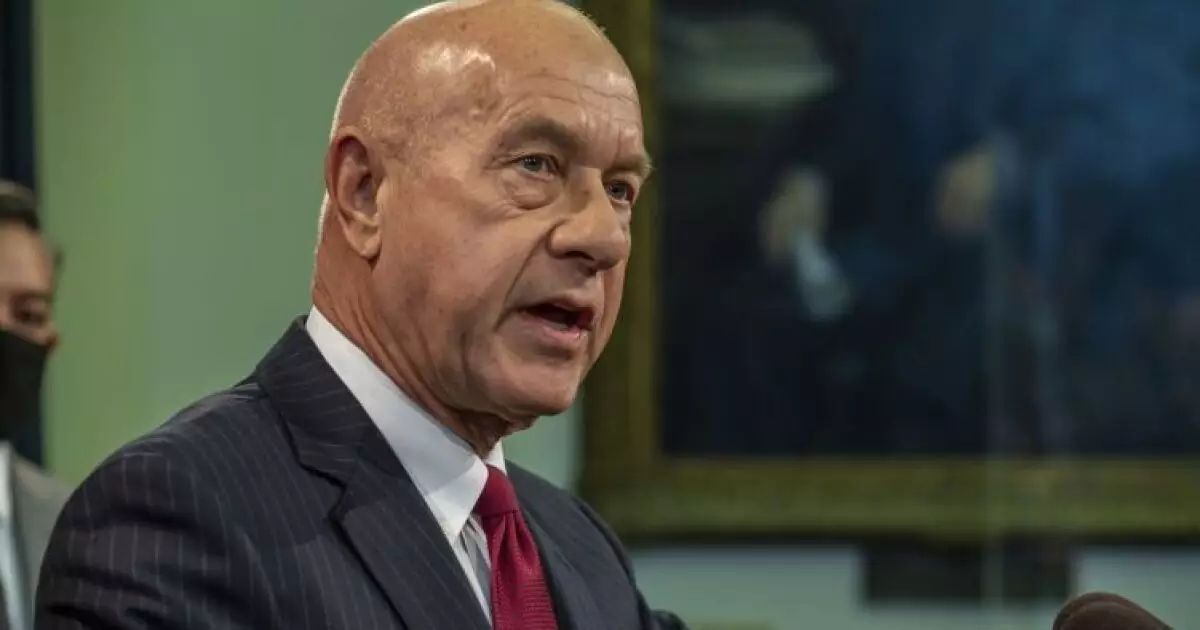Recent developments in Houston’s financial landscape reveal a pressing necessity for transformational change. Mayor John Whitmire’s announcement about securing a deal that mandates the city to allocate at least $100 million annually from property tax revenue for drainage and road improvements is not just a commendable step—it’s an alarming signal of deeper issues that require immediate attention. The fact that a successful lawsuit instigated this financial obligation is a stark reminder that Houston’s infrastructure is not merely in decline but on the brink of crisis.
The agreement, which increases the allocation for infrastructure over the next few fiscal years, is a momentary relief that shrouds a structural deficit potentially ballooning to $320 million. This is indicative of a city grasping for stability amid turbulent financial seas, which reflects poorly on previous fiscal management. Despite appearing to tackle the root of the infrastructure problem, the city is essentially playing a game of catch-up, allowing concerns over aging infrastructure to fester for far too long.
Risk of Inaction: A Looming Budget Catastrophe
One can’t overlook the irony in the city’s predicament: the required funding for maintenance and renewal came only after a lawsuit exacerbated the urgency of the issue. This predicament sheds light on the lack of foresight many city officials exhibited prior to the lawsuit. The delayed action is troubling and significantly underlines the inefficacies embedded within Houston’s political and administrative framework. Mayor Pro Tem Martha Castex-Tatum’s enthusiasm over the deal is commendable, but it does raise questions about the proactive measures that should have preempted this situation.
The financial trajectory is precarious, as indicated by the precipitous drop in projected budget reserves from $349 million to $228 million. A shrinking safety net poses substantial risks to the operational integrity of the city, especially when financial ratings agencies express unease through revised outlooks. The very foundation of Houston’s financial health appears to be at risk, and the failure to maintain and invest in infrastructure seems like malpractice of municipal governance.
A Marginal Solution to Amplified Problems
Moreover, while the new allocation percentages sound promising, they only scratch the surface of the systemic issues at play. Merely shifting percentages year over year does not address the underlying inefficiency that has historically plagued Houston’s fiscal planning. The revelation from an Ernst & Young efficiency study earlier this year ought to serve as a wake-up call; public spending must not only be curbed but reimagined entirely to escape this cycle of reactive governance.
Moreover, the prospective financial relief from a Texas bill allocating 30% of excess Harris County Toll Road Authority revenue could provide added support, but it begs the question—why is the city relying on uncertain legislative palliatives to address its responsibilities? The structural imbalance requires hard-hitting reforms rather than makeshift solutions tethered to externalities.
In a city that prides itself on resilience and growth, these issues must be taken seriously lest they morph into a more catastrophic crisis. Houston deserves robust infrastructure and adept governance—not a mere bandage over an open wound. The current administration must recognize that sustaining a vibrant city necessitates proactive engagement with its fiscal realities before they spiral beyond recovery.

